As global temperatures rise due to climate change, agricultural systems face unprecedented challenges. Heat stress, a detrimental abiotic stress in crop production, can severely impair the growth, yield, and quality of horticultural crops. Both open-field and protected cultivation are affected, making innovative solutions essential.
Research is being conducted at Stellenbosch University aiming to assess whether the impact of abiotic stress on the productivity and quality of horticultural crops could be mitigated through novel strategies, specifically using environmentally friendly plant-based biostimulants, that aim to increase crop tolerance to stress conditions.
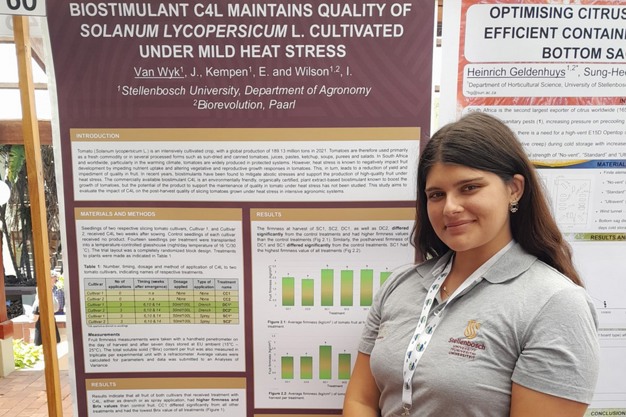
Jancke van Wyk, MSc student at Stellenbosch University
"My research aims to determine whether Crop4Life™ (C4L), an environmentally friendly plant-based biostimulant, can reduce the effects of both mild and severe heat stress particularly on tomato," Jancke van Wyk said, an MSc student at Stellenbosch University.
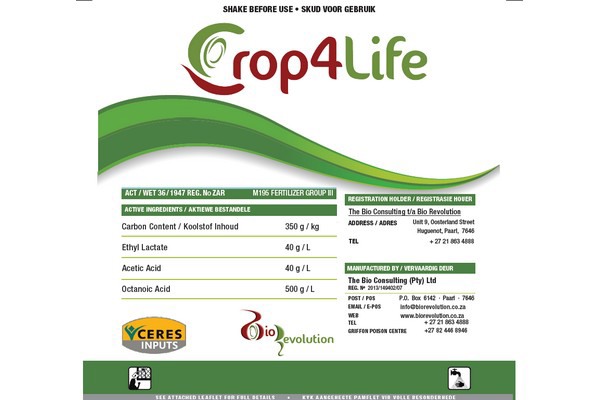
C4L label
Crop4Life biostimulant is registered on 48 crops in South Africa, including cereals, fruits, and vegetables. It can be applied either as a seed treatment, seedling drench, soil drench, or foliar application. This product is known to improve fruit yield, size, and quality under current climatic conditions, but has shown potential to improve crop performance under abiotic stress conditions in prior in vitro studies done at Stellenbosch University. Therefore, this study focussed specifically on the effect of the product on tomatoes under heat stress in intensive farming systems.
Jancke explains the procedure: ''I applied the biostimulant as a seedling drench to the tomato seedlings when they were about two weeks old. Thereafter, seedlings were transplanted into bags of coir and placed in a temperature-controlled glasshouse on the Welgevallen Experimental Farm in Stellenbosch. To acclimatize plants over time the temperature was gradually increased week by week to induce chronic heat stress. Tomatoes were grown hydroponically in a drain-to-waste production system within the glasshouse. Control plants received no C4L during the growing season. The treated plants received three soil drenches or three foliar spray applications of C4L, respectively, at a concentration of 50 ml/100 L (once a month, for three months). For the soil drench treatments, 250 ml of the biostimulant solution was applied per planter bag. Foliar spray applications were applied with a pressure sprayer until runoff. ''
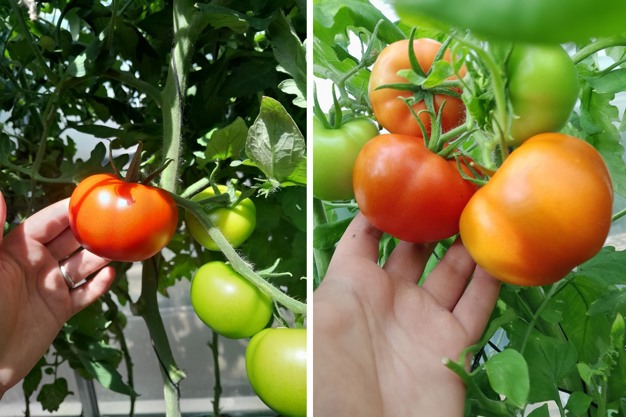
She further states that tomatoes were chosen since it is studied as a global model crop for a better understanding of horticultural crops. Tomatoes are popular for consumption due to their high nutritional value, yet the crop is sensitive to temperature fluctuations. Under severe heat stress conditions, fruitification is significantly decreased and future solutions to mitigate this effect are needed as temperatures continue to rise due to global warming.
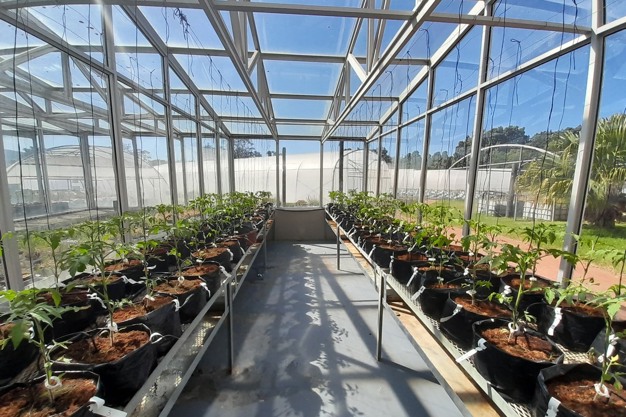
Greenhouse at Welgevallen Experimental Farm
To confirm results, trials were replicated over two growing periods. So far, trial results are encouraging as C4L applied as either a foliar spray or soil drench, significantly improved the vegetative and reproductive parameters of the tomato plants grown under heat stress when compared to untreated plants.
Jancke shared the exciting findings that tomato fruit shelf-life and °Brix were significantly improved and key plant health indicators such as chlorophyll content and leaf °Brix also increased significantly when treated with C4L, under heat stress.
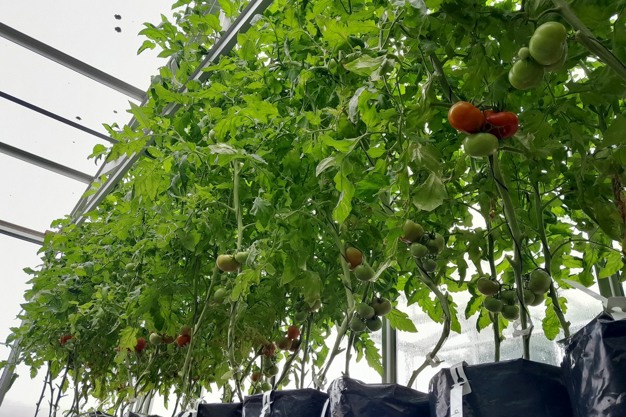
"The significance of this research lies in its potential to support sustainable agricultural practices. As climate change intensifies, biostimulants offer a tool for enhancing crop resilience, which increases yield." Jancke's research accentuates the importance of future strategies to safeguard food quality and security in an increasingly unpredictable climate.
These trials form part of Jancke van Wyk's MSc research in Agronomy at the Department of Agronomy, Stellenbosch University, and as a member of the research and development team at Biorevolution. The project was conducted under the guidance of Dr. Estelle Kempen (Lecturer) and Dr. Ida Wilson (Scientific consultant), with the assistance of Adaduma Msana (Principal technical assistant).
 For more information:
For more information:
Stellenbosch University
Jancke van Wyk
janckevanwyk7@gmail.com
www.sun.ac.za
